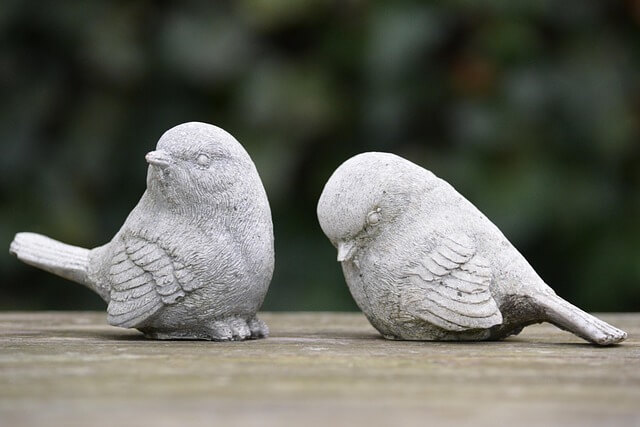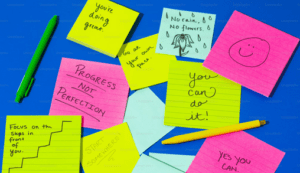The hidden impact of rejection goes far beyond a temporary emotional sting—it silently shapes your mental patterns, emotional responses, and even your spiritual growth. Rejection isn’t always about you being wrong or unworthy; it often reflects someone else’s inability to accept you as you are, simply because you don’t match their idea of “perfection.” Since childhood, we are taught by parents, teachers, and family how to behave, how to succeed, how to be a “good” person—based not on universal truth, but on their belief systems.
What was considered right in your childhood may no longer apply in your adult life. And as you grow and evolve, people may reject you—not because you’re not good enough, but because you no longer fit into their outdated definition of right and wrong. Whether it’s people, jobs, relationships, or society, rejection follows when you refuse to shrink yourself to fit into someone else’s criteria.
So the real question is—what should you do? The answer isn’t to please everyone. It’s to learn from others, observe the world, but ultimately make choices that satisfy your soul—not just your mind. When you chase acceptance only to prove your worth to others, you feed your ego self. Yes, it may bring temporary validation—making your parents proud, gaining social approval—but if deep down you feel disconnected or unhappy, it means you are not living for your soul.
This increases the fear of rejection even more and traps you in a cycle of performing, pretending, and pleasing. To break free from this cycle, you must return to your authentic self—accepting who you are, even when others don’t. In this blog, we’ll explore how rejection affects your mental, emotional, and spiritual health, and how to heal from it so you can finally live a life that feels right to your soul.
Table of Contents
Rejection Effects on Mind /mental health (Conscious & Subconscious)
The hidden impact of rejection on your mind goes much deeper than you may realize. When you’re rejected by a person, place, or even society, it creates emotional distress that affects both your conscious and subconscious mind. Your subconscious mind is like a memory bank—it stores every life experience, especially those tied to strong emotions. Whether positive or negative, your experiences get recorded in the subconscious, and this storage influences how your conscious mind reacts to future situations.
So when you experience rejection, your conscious mind processes what’s happening in the moment—how you feel, what you observe, and how you respond. All of that gets stored in the subconscious, especially if the emotional intensity is high. The stronger your emotional response, the deeper it imprints into your memory. Later, whenever your conscious mind encounters a similar situation, your subconscious immediately recalls those past memories and triggers protective responses—often without you even realizing it.
From a neurological perspective, studies show that rejection activates the anterior cingulate cortex—the same brain region responsible for physical pain, such as burning your hand. This means your brain literally treats rejection as a wound. It’s not “just in your head”—you are experiencing real pain.
Rejection also threatens a core human need: belonging. This activates the amygdala, the fear center of the brain, triggering the fight-or-flight response. As a result, the body releases cortisol (the stress hormone), which can lead to anxiety, panic, and a deep fear of abandonment. At the same time, levels of dopamine, the pleasure hormone, drop—leaving you feeling emotionally numb, empty, or hopeless. This entire experience becomes a painful emotional memory stored in your subconscious, and if left unhealed, it can create neural pathways that shape how you think, feel, and react moving forward.
Rejection also impacts the prefrontal cortex, the area of the brain responsible for logic, decision-making, and planning. That’s why many people who’ve been deeply rejected often become stuck in overthinking, self-blame, confusion, and difficulty making clear decisions. In order to cope, some may suppress their emotions, build emotional walls (ego defense), or start people-pleasing just to feel validated. Even if the conscious mind wants to speak up or be authentic, the subconscious fear of rejection holds them back.
Now you can clearly see the hidden impact of rejection—it doesn’t just touch the surface. It deeply affects both the conscious and subconscious mind, creating emotional patterns that continue until they are recognized, felt, and healed.
Hidden Impact of Rejection on Your Energy and Chakras (emotional health)
The hidden impact of rejection doesn’t just affect your emotions or thoughts—it deeply influences your energy system, especially your chakras. Your chakra energy is shaped by your life experiences, belief system, emotional habits, upbringing, and conditioning. Since all of these are stored in the subconscious mind in the form of energy, they directly influence whether your chakras become balanced or blocked.
Rejection especially affects three major chakras, often creating long-term energy imbalances if not healed:
1. Heart Chakra (Anahata)
The heart chakra is the center of love, self-worth, connection, and empathy. After experiencing rejection, this chakra absorbs the emotional wound and begins to believe limiting ideas like:
- “I’m not lovable.”
- “Nobody truly accepts me.”
- “Love doesn’t exist for me.”
As a result, the heart starts to close off, and the person may:
- Constantly seek validation
- Fall into people-pleasing behavior
- Struggle with self-love or fear opening up again
The blocked heart chakra makes it hard to feel unconditional love—both from others and yourself.
2. Sacral Chakra (Swadhisthana)
The sacral chakra governs emotions, pleasure, creativity, and intimacy. Rejection can deeply disturb this chakra, especially when emotions are suppressed instead of processed.
When this chakra is blocked:
- You may become emotionally numb
- Struggle to connect with your desires
- Experience fear of intimacy or emotional vulnerability
Unhealed rejection teaches the subconscious to protect itself by not “feeling too much,” which eventually blocks emotional flow and pleasure.
3. Throat Chakra (Vishuddha)
Once the heart and sacral chakras are blocked, it naturally affects the throat chakra, which is responsible for truth, expression, and communication. The fear of being judged, abandoned, or rejected again stops you from speaking your truth.
You may experience:
- Fear of expressing your needs
- Holding back your voice or opinions
- Saying “yes” when you mean “no”
The subconscious learns it’s safer to stay silent than to be rejected again.
4. Root Chakra (Muladhara) – Secondary Effect
Over time, these imbalances can also affect the root chakra, which governs your sense of safety, stability, and survival. Rejection—especially if repeated—can shake your foundation and make you feel insecure or anxious about your place in the world.
Symptoms may include:
- Overthinking about stability (money, home, relationships)
- Constant worry or anxiety
- Lack of trust in life or people
Effect of Rejection on your Spiritual Health:
The hidden impact of rejection doesn’t just stay in the mind—it creates emotional wounds in your subconscious and blocks the natural flow of energy in your chakras. These wounds often make you overly defensive, especially in love and relationships. You may begin to fear closeness, avoid emotional intimacy, or even self-sabotage connections because of a deep fear of abandonment.
But the good news is: healing is possible. You can reprogram your subconscious mind and unblock stuck energy, allowing yourself to feel love again, live freely, and experience deep self-worth.
Here are 6 powerful ways to heal the hidden impact of rejection:
Rejection wounds your soul too.
Your soul craves love, oneness, and divine connection. But when you face rejection repeatedly—especially from close connections or your twin flame—it can feel like you’re separated from your true self or even from God/Source.
It can cause:
- Soul loss or spiritual numbness
- Disconnection from your higher self
- Repeating karmic patterns from past lives
How to Heal from Rejection Holistically:
1. Accept Yourself As You Are
Until you fully accept yourself, no one else truly will. When you embrace who you are—flaws, gifts, and all—you emit a powerful energy of confidence and authenticity. And your outer world begins to mirror that back.
The more you come into self-acceptance, the more magnetic and peaceful you become. People will naturally be drawn to your energy, because it feels safe, real, and radiant.
2. Stop People-Pleasing
No matter what you do, you can’t make everyone happy. Even the divine is both loved and hated—because light always triggers shadows in others. So stop doing things just to seek approval.
Instead, ask yourself: “Does this satisfy my soul or just my ego?”
Do things with a full heart, for your growth—not for validation.
The more honest you are with yourself, the more empowered and free you’ll feel.
3. Practice Self-Love
The hidden impact of rejection can only be fully healed through self-love. When you truly love yourself, no one can take that away from you. Self-love will not only heal the pain but also unblock your heart chakra, restore your energy field, and reconnect you with the universe.
Remember: the divine loves those who love themselves—not in a selfish way, but in a soul-honoring way, where you become your own safe space without hurting others.
4. Reprogram Your Subconscious Mind
Your subconscious holds all your beliefs and emotional patterns. To heal from rejection, you must replace limiting beliefs with loving, empowering ones.
- Use affirmations like:
“I love myself.”
“I am the most precious, loving child of God.”
“I fully accept who I am.”
Say them right after waking up and before sleep—these are times when your subconscious is most open to change.
You can also listen to theta sound waves, which help shift your brain into a peaceful, receptive state—making it easier to reprogram your subconscious and calm your nervous system. As your subconscious heals, you’ll begin to feel inner peace, which improves your relationship with yourself and others.
5. Mirror Work
Mirror work is a sacred way to build self-love and confidence. Stand in front of a mirror, look into your own eyes, and say loving words to yourself—just like you wish others would. Don’t focus on flaws; focus on your soul.
Speak words like:
“I love you.”
“I’m proud of you.”
“You are more than enough.”
If you do this daily with presence and no self-judgment, you’ll notice a transformation in your self-esteem within days.
6. Connect with Nature and the Divine
When you feel out of place among people or misunderstood by society, turn to nature and spiritual connection. Spend time with trees, rivers, flowers, birds—nature has its own way of healing your nervous system.
Talk to the divine, meditate, or simply sit in stillness. You’ll start to feel loved and supported by something far greater than humans. When you let the universe become your source of love, you stop depending on others for validation. You can also give love freely, because now, your cup is full.
Helping those in need is another beautiful way to transmute pain. Acts of kindness clear karmic blocks and give you deep soul-level joy, peace, and meaning.
And here you can Read this post to heal all those 4 chakras i n detail
Conclusion:
The hidden impact of rejection may leave scars, but with conscious effort, you can transform those scars into light. By healing your subconscious, reprogramming your beliefs, and opening your chakras, you allow love to flow again—within you and around you.




